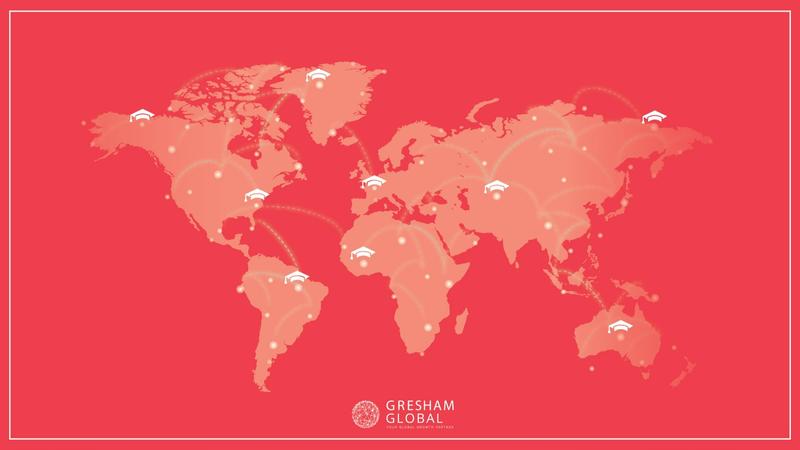Published 17:04 IST, September 14th 2024
Gresham Global helps international universities expand their reach through strategic partnerships
Gresham Global helps international universities expand their reach through strategic partnerships

India, 11th September 2024: In today’s evolving education landscape, institutional partnerships open the way for improving and fostering global education systems. A report “Role of international higher education partnerships in contributing to the sustainable development goals” by British Council and The Association for Commonwealth Universities explains the far-reaching benefits of education partnerships and their contribution to Sustainable Development Goals (SDGs). Some of these include improved education curricula, innovative pedagogies, access to research infrastructure, capacity building of faculty and increased access to quality education across borders.
One of the key areas of New Education Policy (NEP) 2020 is internationalisation of higher education system in India. “The regulations put forth by University Grants Commission ( UGC ) under the NEP on enabling international partnerships through dual and joint degrees and setting up of foreign university campuses have set the stage for expanding internationalization in education” says Jasminder Khanna, Co - Founder at Gresham Global, an in-country representation specialist firm aimed at expanding the reach and visibility of international universities in South Asia. These regulations are aimed at enhancing student mobility through student exchanges and credit recognition under twinning arrangements. The policy also advocates for research, innovation and capacity building through joint research programmes and faculty exchanges.
Gresham Global is helping international universities establish meaningful, long-term relationships with Indian universities. These exchanges are meant to open avenues for students in India and abroad to explore opportunities through easily implementable mechanisms like staff exchange, knowledge sharing, summer exchanges, online learning, internships and project work, in addition to longer term arrangements like twinning, joint and dual degrees, and joint research projects. International collaborations create pathways for students to experience cultural and intellectual diversity in addition to improving the learning outcomes by adhering to international benchmarks in academic curricula. In addition to this, partnerships also offer an opportunity to achieve resource optimisation through sharing resources like student support services, libraries, digital tools and learning platforms.
Jaspreet Singh, Co-founder at Gresham Global adds, “Amidst the uncertain times in international education market, we envisage that these partnerships will provide a sustainable platform for recruiting students to international programmes, while also generating steady revenue streams for our clients”. International education partnerships also promote inclusive education by widening access for students from disadvantaged and/or low-income backgrounds, who might find it difficult to afford foreign degrees that come with exorbitant tuition fees. A student recruitment strategy offering Scholarships and grants under a collaborative framework can cater to the student needs thus, presenting a win-win situation for both institutions and students.
Regarding cultivating transnational education partnerships, Ramita Taneja, Head- Research and Partnerships at Gresham Global comments, “one of the key components in ensuring a successful partnership is carrying out partner prospect research driven by clear strategic objectives.” Selection of partners should be guided by a focussed academic rationale, along with identifying complementary strengths of the two partnering institutions to create a joint value proposition for the various stakeholders involved. Institutions should define a common ground through discussing their expectations and goals that they envision through entering a partnership. As a next step, it is vital that institutions choose collaborative models that align with the goals and needs of the foreign education provider and the home country. To build a thriving partnership ecosystem, it is imperative to think of partnerships as a journey and not a transaction and hence, build mechanisms for efficient steering and governance. It has been noted that involvement of faculty members brings a sense of ownership throughout the life cycle of a partnership. While partnerships enhance cultural and intellectual diversity, it is critical to evaluate the risks associated with reputation management, academic quality, accountability and cultural sensitivities to enhance overall student experience.
To know more, visit - https://gresham.world/
Updated 17:05 IST, September 14th 2024



